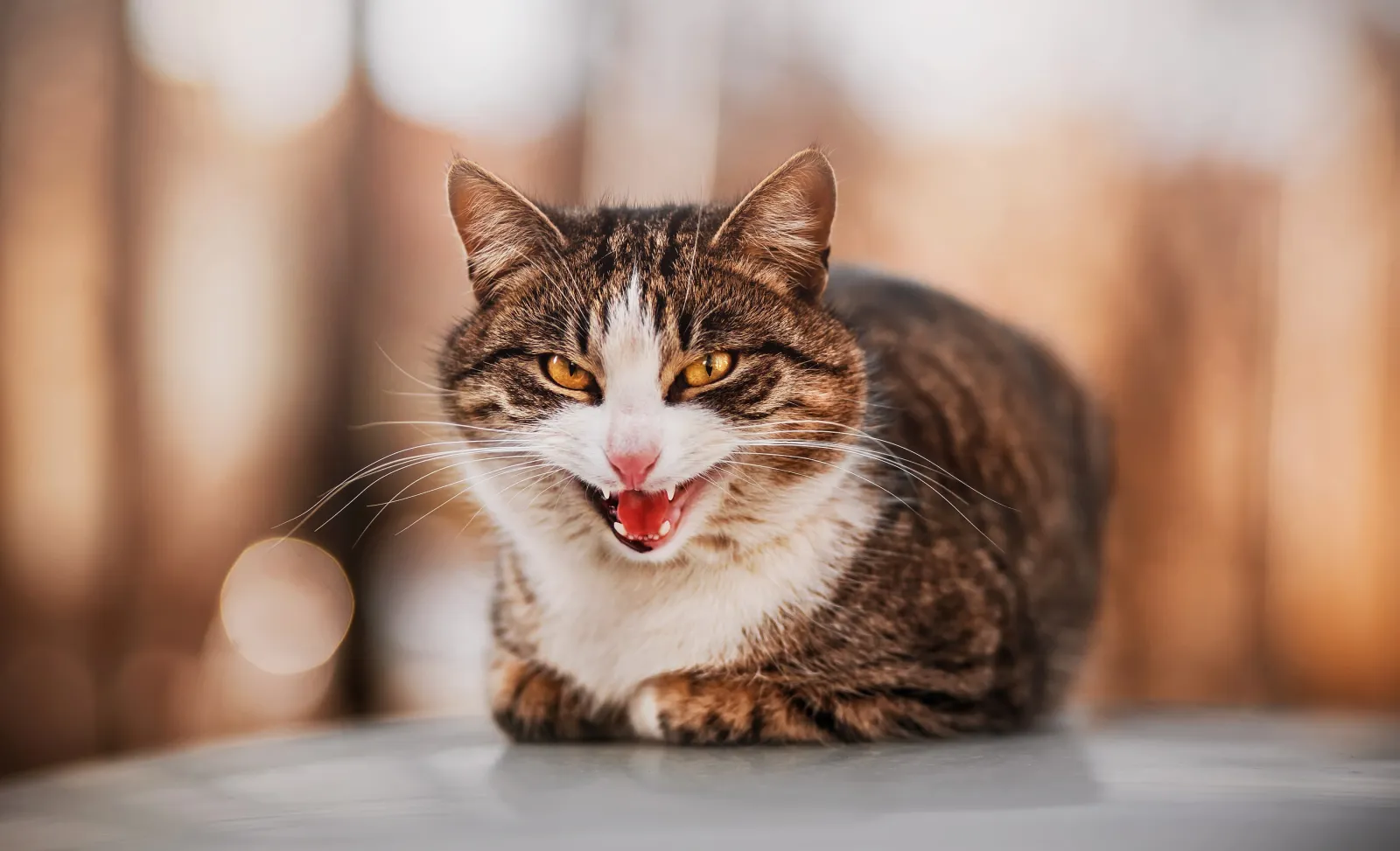Why Do Cats Become Hostile if You Forgot to Feed Them?
Anyone around cats knows they can be vocal about their mealtime expectations. But what happens when you forget to feed your feline friend, and suddenly, they transform into an angry cat? In this article, we will delve into the intriguing world of feline behavior to understand why cats can become hostile when their feeding schedule is disrupted. We will also explore whether cats hold grudges and how to decipher their communication through how to read cat body language.

The Instinctual Hunger Response
Cats are natural hunters; their evolutionary history has made them excellent predators. This predatory instinct extends to their daily routines, especially mealtime. When you forget to feed your cat at the usual time, their internal hunger alarm goes off, and they may respond with demanding behavior, vocalizations, and even anger.
- Survival Mode: In the wild, cats must catch and eat multiple small prey animals daily to sustain their energy. Missing a meal can trigger a survival response, leading to anxiety and vocal protests.
- Routine-Oriented: Cats are creatures of habit and thrive on routines. Skipping a meal disrupts their expected schedule, making them uneasy and more likely to act out.
- Communication: Cats use meowing and other vocalizations to communicate their needs. When they're hungry, and you're not responding, they'll often increase their vocalizations to get your attention.
The Notion of Holding Grudges
The idea of cats holding grudges is a common misconception. Cats don't possess the cognitive ability to harbor long-term resentments. However, they have a remarkable memory of past experiences and can remember how their immediate environment and interactions make them feel certain behaviors.
- Associative Memory: Cats remember specific experiences and associate them with emotions. For example, if your cat was hungry and you missed a meal, they might remember feeling ravenous the next time they see you.
- Positive Reinforcement: Cats also remember positive experiences and form attachments to those who provide care and attention. Regular feeding and affection can create a positive bond.
- In-the-Moment Reactions: Cats react to their immediate environment and experiences. If you've forgotten to feed them, they respond to their current hunger and discomfort, not holding a grudge against you.
How to Read Cat Body Language
Understanding how to read a cat's body language is crucial for interpreting your cat's needs and feelings. Here are some key cues to look for:
- Tail Position: A cat's tail can indicate their mood. A raised tail with a slight curve at the tip often means a content and relaxed cat. A puffed-up tail suggests fear or aggression.
- Ears: Forward-facing ears indicate curiosity or contentment, while flattened ears suggest fear or irritation.
- Purring: Purring is commonly linked to contentment, but cats may also purr when experiencing pain or discomfort. It's crucial to consider the broader context in understanding their emotional state.
- Hissing and growling: Hissing is a clear sign of aggression or fear. Giving your cat space and time to calm down in these situations.
- Eye Shape and Blinking: Slow blinking shows trust and affection. Half-closed eyes suggest relaxation. Dilated pupils may indicate excitement or fear.
Addressing an Angry or Hungry Cat
If you've forgotten to feed your cat and they're displaying signs of frustration or hunger, here's how you can address the situation:
- Apologize with Food: Offer your cat a meal or snack when you realize you've missed a feeding. They'll appreciate the gesture.
- Maintain a Routine: A regular feeding schedule is vital to keeping your cat content. Consistency not only reduces their anxiety but also helps prevent future outbursts.
- Positive Reinforcement: Spend quality time with your cat, offering play, affection, and attention to strengthen your bond.
- Communication: Pay attention to your cat's vocalizations and body language. Their cues can guide you in understanding their needs.
- Consult a Vet: If your cat's behavior is consistently hostile or you notice changes in their eating habits, consult your veterinarian to rule out any underlying health issues.
The idea of your cat becoming hostile if you forget to feed them is rooted in their instincts and their dependence on routines. While cats don't hold grudges in the human sense, they remember experiences and emotions associated with their immediate environment. Understanding how to read a cat's body language is essential for interpreting your cat's needs and moods. If you are in a situation where your cat is displaying aggression or frustration, address their immediate needs, maintain a routine, and provide positive reinforcement to create a harmonious and trusting relationship with your feline friend. If you need any help, contact us today.


